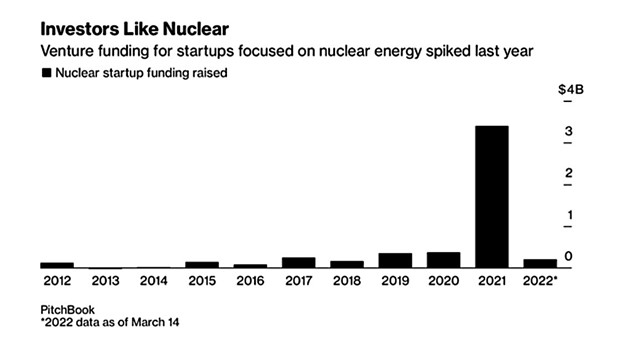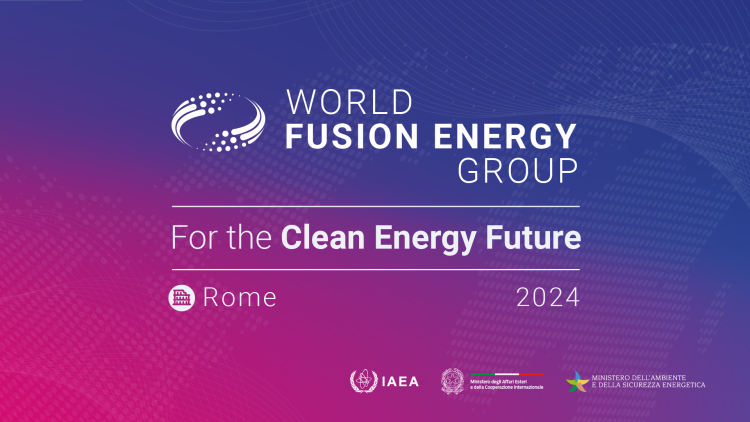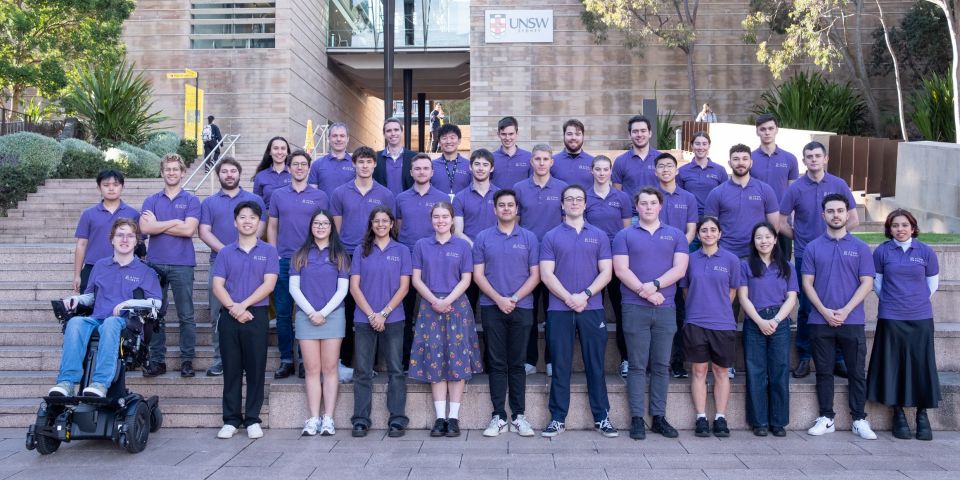According to the article, venture funding for startups focusing on nuclear energy reached a peak in 2021, with an investment amount that year of $3.4 billion. That amount compares with $381 million in 2020 and only $131 million back in 2012.
Pronuclear actions: Chapman highlights the recent pronuclear actions of a number of prominent tech leaders, including how “Elon Musk wrote on Twitter that nuclear is ‘critical’ to national security, while the risk of radiation is overplayed.” Chapman also cites investor and software engineer Marc Andreesen calling for “1,000 new state-of-the-art nuclear power plants in the U.S. and Europe, right now.”
War and climate: The current war in Ukraine “galvanized a sentiment which has been building in recent years in the startup world, where billionaires including Bill Gates, Jeff Bezos, and Peter Thiel have opened their wallets to back next-generation nuclear companies,” Chapman writes. But in addition, the increased venture capital funding of nuclear is driven by the ongoing concern about climate change, as investors point to nuclear power’s lack of carbon emissions, reliability, and potential as a path toward energy independence for the United States.
Fusion and fission: Chapman also discusses the attraction of venture capital due to technological innovations, including advances in nuclear fusion. She quotes Christofer Mowry, chief executive officer of the Bezos-backed General Fusion and a board member of the Fusion Industry Association, as saying, “Silicon Valley has been the foundation of the entire private fusion industry.” Fusion startup Helion is another example, having raised more than $570 million from Silicon Valley investors.
Chapman closes her article by pointing out that “nuclear fission startups could have a more immediate impact” than fusion startups. In that regard, she describes the innovative work of Gates’s TerraPower, which already has plans to build two reactors with the Department of Energy and has seen recent interest from European countries. According to TerraPower director of external affairs Jeff Navin, “Not surprisingly, we’re seeing the most interest from those places bordering Russia and relying on them for energy.”
But despite the uptick in interest and venture capital, new builds are far off. As Navin states, “It takes time to sell a nuclear power plant.”










